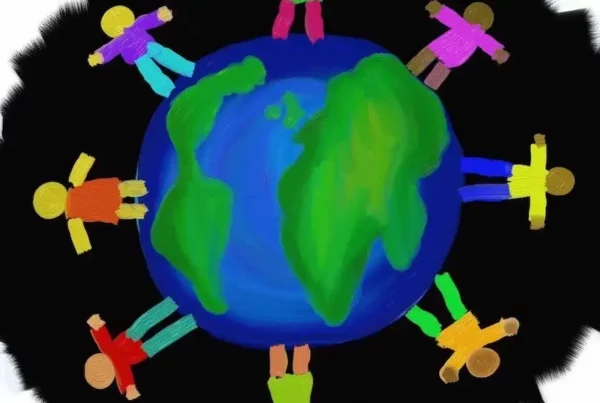Throughout my PhD, I often found myself explaining why plants are fascinating, justifying why I was devoting four years of my life to researching the minute details of their biology.
A few weeks ago, I thought I’d ask the #plantsci community on Twitter what makes them love plants. The response was phenomenal, so I thought I’d share it here as a fun way to transition to 2017!
(This is just a handful of the huge number of comments. To read them all, click here.)
Hey #plantsci, I need your help! What makes you love plants? What’s your comeback to “plants are boring”? Thanks! Plz RT! @PlantTeaching 😉
— Sarah Jose (@JoseSci) November 9, 2016
Many of us are amazed by the fact that they can fend for themselves, rather than running away from harsh conditions or predators:
@JoseSci @PlantTeaching Plants have to deal with many of the same struggles as animals – and they can’t even run away. — Alice Foxall (@alicefoxall) November 13, 2016
@JoseSci @PlantTeaching They’re incredibly resilient and adaptive all without having a nervous system or being able to move!
— Silvia Caldararu (@SCaldararu) November 10, 2016
@JoseSci @DJPMoore Plants survive and thrive in places most humans would never dare even to visit. — Tom Buckley (@TomBuckleyLab) November 10, 2016
@JoseSci forever plastic and survive in the situation wherever they lay their roots. Not denying that’s cool!
— Kelly (@kaatkins7) November 10, 2016
Don’t worry though, because plants can fight back:
@JoseSci @PlantTeaching my tree was attacked by aphids. It released a sweet liquid that attracted ants, chasing away the aphids! — Allen Greeley (@taku2473allen) November 9, 2016
They can alter their environments in really interesting ways too:
@JoseSci @SCIHorticulture @PlantTeaching exudates – active modification of rhizosphere to block toxins entering roots and mobilise nutrients
— Mark Nason (@Cornwall_SciEnv) November 9, 2016
A lot of people are interested in plant reproduction:
@JoseSci @PlantTeaching #Plant sex lives (reproductive life cycles) are so much more complex than ours. Animal life cycles are boring. — Eve Emshwiller (@EveEmshwiller) November 10, 2016
@JoseSci @Botanical_ @PlantTeaching look at all of those reproductive strategies. Plants are truly amazing!
— The Morris Lab @MTSU (@themorrislab) November 9, 2016
Some species can survive for millennia:
@JoseSci @PlantTeaching even relatively short lived yes love longer than humans… some trees count in centuries — Dave Moore (@DJPMoore) November 9, 2016
@JoseSci @PlantTeaching Try cutting one of your appendages off and see if it regrowth like a plant can.
— Edith L. Hardcastle (@elhardcast) November 9, 2016
@JoseSci @PlantTeaching some genetic individuals (plants) might live forever — Dave Moore (@DJPMoore) November 9, 2016
Much of the rest of the ecosystem relies on them…
@JoseSci @DJPMoore Plants can live without us, but we can’t live without them. Animals are just parasites on a biosphere fueled by plants.
— Tom Buckley (@TomBuckleyLab) November 10, 2016
@JoseSci @PlantTeaching if animals died out many plants would survive…if plants died out most animals would die also — Dave Moore (@DJPMoore) November 9, 2016
… and of course, they give us much of what we need to survive…
@JoseSci @PlantTeaching bread, beer, wine, oxygen…
— Matthew Gilliham (@IonPlants) November 10, 2016
@MMLewandowski52 @PlantTeaching @JoseSci literally food out of (thin) air…especially in aeroponic systems — Krishna Udaiwal (@Plant_Learner) November 10, 2016
@JoseSci @PlantTeaching Plants do everything we do + capture sun E + synthesize virtually all useful medicines and poisons + are beautiful
— Paul Twigg (@UNKBiol106) November 9, 2016
@JoseSci @PlantTeaching Kinda hard to breathe without ’em, for one! — Dan Lin (@DLinYZ) November 10, 2016
@JoseSci @PlantTeaching Well, they make colours, flavours, fragrances, drugs…
— Anne Osbourn (@AnneOsbourn1) November 10, 2016
@JoseSci @PlantTeaching we depend on plants for just about everything, plants are _not_ boring! — McPanos (@panagopucakes) November 18, 2016
We need to highlight how amazing plants are, to counteract “plant blindness”:
@JoseSci @PlantTeaching read this amazing article about #plantblindness by @fossilplants https://t.co/xYWS0MATGM — Lyza Maron (@LyzaMaron) November 10, 2016
@JoseSci @Botanical_ @PlantTeaching plants are all around, always. We watch them seldom. The beauty of the unseen — SEB (@SEBriologia) November 9, 2016
Plant blindness means that many people are unaware of the amazing things that are happening around them:
@JoseSci @PlantTeaching 1) only boring on a minute-by-minute timescale – sped-up timelapses reveal remarkable behaviour (eg phototropism) — Daniel Seaton (@DanielDSeaton) November 11, 2016
@JoseSci @PlantTeaching plants are more just more veiled about how cool they are…like the quiet kid w/ some WILD tricks up their sleeve
— Beth Ansaldi (@AWomaninSTEM) November 9, 2016
Being scientists, a lot of people liked how easy plants are to work with!
@JoseSci @PlantTeaching Plants stay in one place, so I can sample them easily. I love them for that! — A.C. Papageorgiou (@ACPapageorgiou) November 10, 2016
@JoseSci @PlantTeaching It is not as much paperwork when you want to dissects plants! And their stem cells make Sequoia trees live (almost) forever ! — Marie Pireyre (@MapiMry) November 10, 2016
@JoseSci @PlantTeaching They stand still while I measure them! — Vigdis Vandvik (@VVandvik) November 10, 2016
Some of the biggest scientific discoveries were made in plants:
@JoseSci @PlantTeaching the big discoveries. Mendel & the pea; Hook & first cell; McClintock & transposable elements; PTGS in petunia
— Peter Etchells (@peter_etchells) November 9, 2016
In conclusion:
.@JoseSci @JohnInnesCentre @PlantTeaching
Plants are awesome!
— Molecular Plant Path (@MPPjournal) November 11, 2016
Thanks to everyone who took part in this twitter chat! This is just a subset of the huge number of comments we received. To read them all, click here!
Have we missed anything? Why do you love plants?






